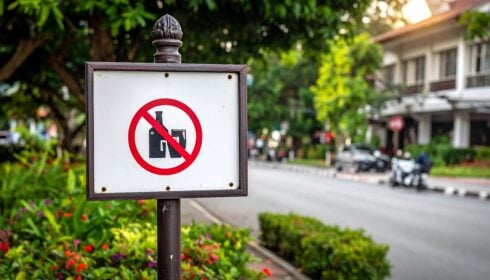BRITISH Prime Minister Rishi Sunak has been saying for some time that his ‘working assumption’ is for a UK general election to be held in the second half of the year.
While the date is yet to be set by the Conservative leader, the call to the polls will be a particularly significant one for long-term expats, thanks to a change to the law that was introduced on January 16.
Sunak’s government did away with the so-called ‘15-year limit’, which barred anyone who had lived outside the UK for more than 15 years from voting.
The implementation of the Elections Act 2022 means that more than three million British expats have now regained their right to vote in UK general elections.
Read more: Long overdue law change comes into effect

Now, any UK citizen who has lived at any time in the UK can vote in a parliamentary election, irrespective of how long they have lived abroad.
The Madrid-based EuroCitizens group, which lobbies for post-Brexit rights of UK nationals living in Spain, is keen to get information out to the British community so that they are aware of their new rights and how to register to vote.
“Registering is simple, and the UK government advice on how to do so is straightforward,” explains Nigel Aston, who is the president of EuroCitizens as well as the vice-chair of British in Europe, the pan-EU coalition of similar organisations.
To find out what you need to do, you should head to the gov.uk page covering elections in the UK. There, you can answer a series of questions that will point you in the right direction.
For example, if you are not currently registered to vote in the UK, you can do the process online via the gov.uk page using your National Insurance number.
And if you are unsure if you are already registered, there are instructions on how to contact your local electoral registration office to find out. Your right to vote will be linked to the last UK address where you either lived, or where you were registered to vote.
Then you can use the gov.uk webpage to decide how you want to vote in the election.
“Voting can be done in person or by post, including returning ballot papers by courier,” explains Aston. “But realistically, for overseas residents voting in person is not a practical option.”
Organisations such as British in Europe did lobby the UK government to make more use of digital options, but in the end the decision was made to not permit the electronic despatch of ballot papers, nor any kind of electronic voting.
“The government also declined to allow voting in embassies and consulates,” Aston adds.
The most likely options, then, are voting by post or voting by proxy. To vote by post, you can apply online at the gov.uk page here, and to vote by proxy, you can apply here.
“If you cannot name a proxy in the constituency in which you are registered there shouldn’t be a problem,” explains Aston. “Someone living within easy travelling distance of the polling station can take on the proxy role. Or they can have a postal proxy vote but from within the UK. I have done this for my constituency very easily.
“Then you only have then to worry whether or not the proxy will vote as you instruct!”
Click here to read more Spain News from The Olive Press.








